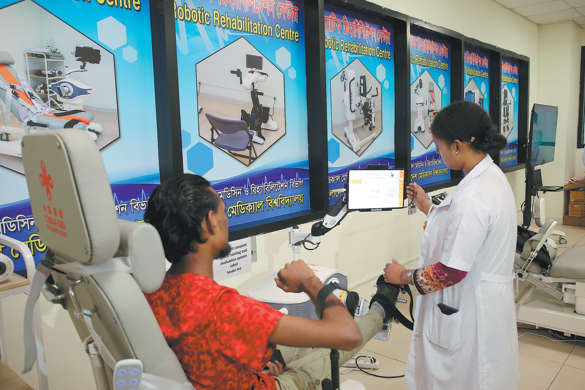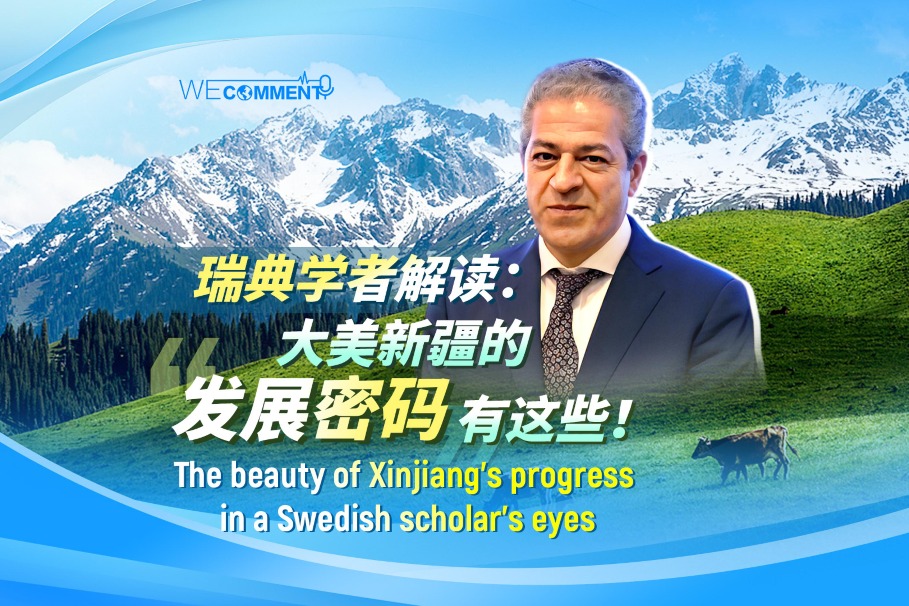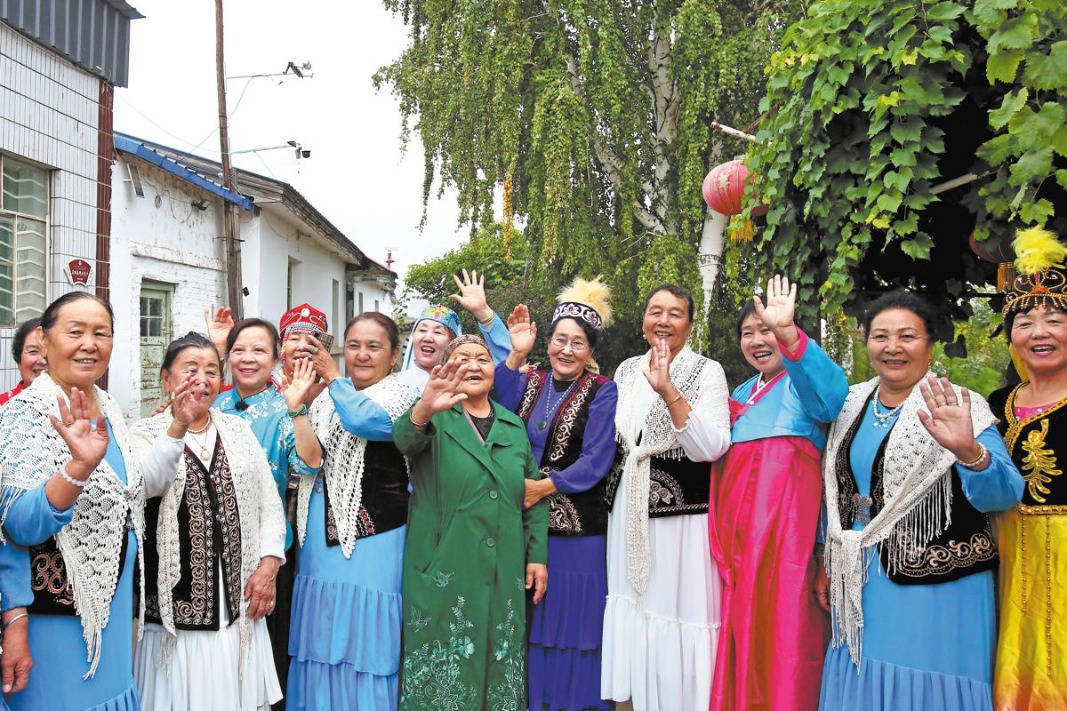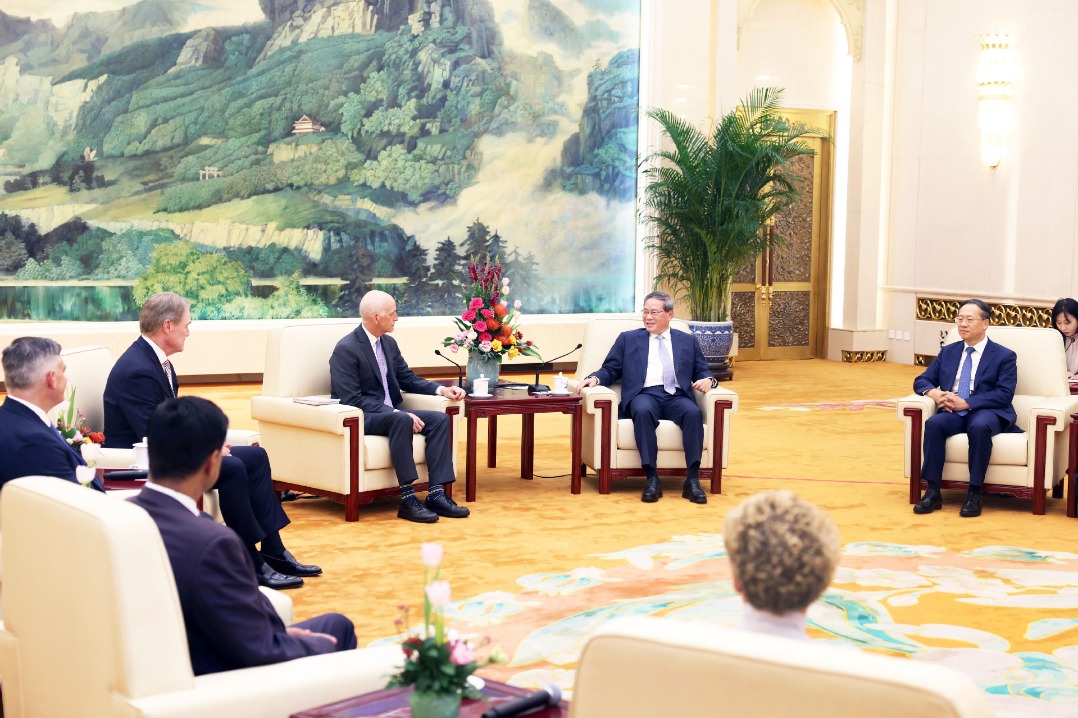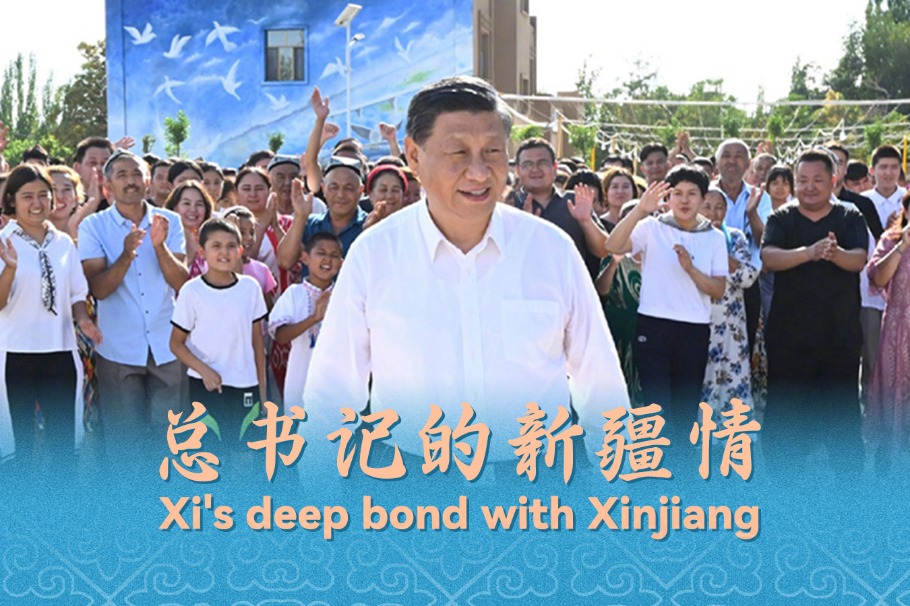Chinese-style democracy in full play
By Robert Lawrence Kuhn | China Daily | Updated: 2023-03-11 13:59
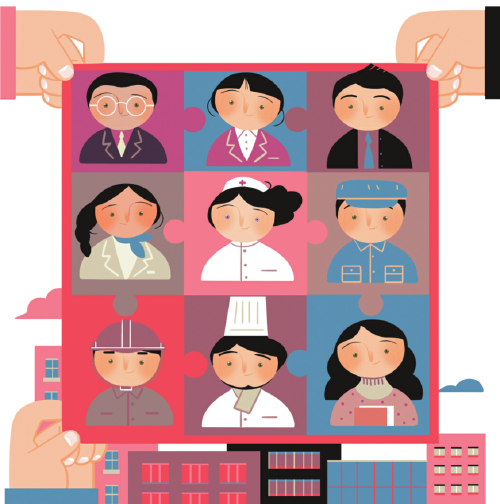
The 2023 National People's Congress, China's highest body of State power, looks back to review and report, while looking ahead to formulate and implement.
Although this is an annual event, it has special significance this year, as it sets in motion policies and programs of the 20th Communist Party of China National Congress, which provides the development blueprint for the next few decades. The grand vision, as President Xi Jinping states, is "building China into a modern socialist country in all respects and advancing the great rejuvenation of the Chinese nation on all fronts".
Essential is China's commitment to enhance its form of democracy, which it calls the "Whole-Process People's Democracy". China's democracy is no verbal mirage: it is one of the six aspirational adjectives that President Xi uses to describe China's national rejuvenation. Democracy in the Party-led system involves various feedback and interactive mechanisms, especially people's congresses at various levels, and it also entails ensuring adequate standards of living for all Chinese citizens.
A primary view of Chinese-style democracy is provided by the formal processes of the people's congresses, culminating in the NPC. Empowered to enact laws, the NPC as a whole meets every March, but its various committees, especially its Standing Committee, meet throughout the year to plan and prepare various pieces of legislation that set the political agenda for the year.
Deputies to people's congresses are elected according to the Chinese system, which is always under the leadership of the Party. As of 2022, there were more than 2.6 million deputies to China's five levels of people's congresses: State, provincial, municipal, county and township, with all deputies of congresses at the level of county and township elected directly by voters.
The election of NPC deputies is the basic premise for the people to be the masters of the country, to exercise State power and manage State affairs. It is the first link in the whole chain of people's democracy throughout the whole process.
Candidates for deputies recommended jointly by more than 10 voters have the same legal status as candidates recommended by various parties and people's organizations, according to the Electoral Law of the National People's Congress and local people's congresses. It may surprise some that the Party promotes competitive elections so that voters and representatives have more choices. And Party-led committees are responsible to vet or verify qualifications of candidates and deputies before and after elections.
To facilitate fair voting, election funds for people's congresses at all levels are provided by the State treasury; secret ballots ensure free choice of voters; and behaviors that undermine elections are punished severely.
Supervision by voters over deputies can take various forms, such as listening to deputies' reports, making criticisms, offering opinions and suggestions, and even recalling deputies.
The election of NPC deputies must adapt to the times. The ratio of urban and rural representatives has shifted from 8:1 in 1953 to 1:1 today, ensuring equality between urban and rural areas. Adjustments are made to ensure an appropriate number of representatives from all regions, ethnic groups, social strata, industrial sectors, and government and military services.
For almost a decade, I have been focusing on understanding China's concern for its poorest citizens, and how, especially under President Xi's leadership, the CPC has prioritized its overarching commitment to enhancing the standards of living — to improve the livelihood — of all sectors of the country's vast and diverse population, especially through the CPC's "targeted poverty alleviation campaign".
As an example of the absence of understanding, when a rather sophisticated American watched a documentary I presented and wrote on China's poverty alleviation campaign, he remarked, "I didn't realize China's leadership cared at all for its poor."
That documentary, Voices from the Frontline: China's War on Poverty, showed how the CPC's five levels of local organizations (provincial, municipal, county, township, village) carried out directives of the leadership. The documentary opens with my stating, "To President Xi Jinping, ending poverty is his most important task", and the documentary concludes by quoting President Xi making the remarkable statement, "I have spent more energy on poverty alleviation than on anything else." To my knowledge, no other national leader has made such a commitment, and such a declaration, to alleviate poverty.
When historians of the future write the chronicles of our times, a feature story may well be China's targeted poverty alleviation.
To President Xi, China could not have achieved its goal of becoming a moderately prosperous society in 2020 if any of its citizens had remained in extreme poverty.
Although China declared the eradication of all extreme poverty at the end of 2020, relative poverty remained a major problem, with large disparities between urban and rural, coastal and inland areas.
Thus, as 2021 began, President Xi, without hesitation or much time to celebrate or rest, transitioned from poverty alleviation to rural revitalization. Moreover, later in the year, he prioritized "common prosperity" as an overarching policy guideline for China to achieve a fully modernized socialist country by mid-century, 2049, the 100th anniversary of the founding of the People's Republic of China.
While common prosperity covers diverse policies, its unalloyed purpose is to improve the lives of rural citizens, farmers and workers, including migrant workers.
China rightly celebrated the success of its poverty alleviation campaign, which had brought about 100 million of the intractably poor out of extreme poverty. For China to achieve the Chinese Dream of national rejuvenation, eliminating extreme poverty was necessary — but it was not sufficient. China must continue to fight poverty by reducing the still-substantial relative poverty and close the still-excessive wealth gap, primarily between rural and urban areas.
Enhancing rural standards of living exemplifies China's long-range vision to the years 2035 and 2050 to become a fully modernized, socialist nation, which is defined by those six aspirational adjectives: prosperous, strong, democratic, culturally advanced, harmonious and beautiful. Actualizing these adjectives depends on the success of rural revitalization. Without the revitalization of the countryside, there can be no social stability, no national prosperity, no national rejuvenation.
While grand visions are formulated by the central leadership, they must be implemented by local, grassroots officials who implement the programs — officials whose challenges include being constantly on the road, with little rest, low welfare, and minimum opportunities for promotion — plus to-be-expected complaints from villagers below and not-infrequent pressures from officials above. That's why new policies promote the care of grassroots officials: easing their burdens by fighting pointless formalities, reducing the number of meetings, providing incentives for serving the people including salary guarantees and opportunities for career advancement.
Grassroots problems impeding the building of a prosperous countryside also include the quality of rural industries, infrastructure, public services, civilized culture, ecology and governance. Moreover, senior officials warn against promoting benefit-induced indolence, requiring officials to promote low-income people's "will" and "intellect" to improve their own lives.
It has become a meaningful tradition in China that the first document issued by the CPC Central Committee and the State Council each year, dubbed the "No 1 Central Document" (indicating policy priority), concerns modernizing agriculture, building rural areas, and improving the lives of farmers. Document No 1 exemplifies China's concern for its poorest citizens.
This year, Document No 1 again emphasizes how to advance the modernization of three rural work categories: agriculture, rural areas, farmers. The document aims to stabilize production and ensure the supply of grain and other critical agricultural products; enhance the construction of agricultural infrastructure; increase support for agricultural science, technology and equipment; consolidate the achievements of poverty alleviation goals and expand the process; and promote high-quality development of rural industries.
Looking back and looking forward is always the framework for annual NPC sessions, but this year, it is a milestone on China's intended march to great rejuvenation. In doing so, it heralds a new slate of government leaders — premier, vice-premiers and ministers — charged with the Herculean task of making it real.
Their challenges, domestic and international, are no State secret.
It is a grand vision. But a tall order.
The author is a public intellectual and international corporate strategist who won the China Reform Friendship Medal (2018). He is also chairman of the Kuhn Foundation.






